
The Harvard Law Review is a law review published by an independent student group at Harvard Law School. According to the Journal Citation Reports, the Harvard Law Review's 2015 impact factor of 4.979 placed the journal first out of 143 journals in the category "Law". It is published monthly from November through June, with the November issue dedicated to covering the previous year's term of the Supreme Court of the United States. The journal also publishes the online-only Harvard Law Review Forum, a rolling journal of scholarly responses to the main journal's content. The law review is one of three honors societies at the law school, along with the Harvard Legal Aid Bureau and the Board of Student Advisors. Students who are selected for more than one of these three organizations may only join one.
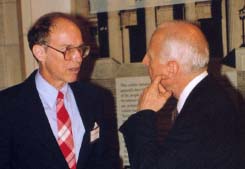
James Harvie Wilkinson III is an American jurist who serves as a United States Circuit Judge on the United States Court of Appeals for the Fourth Circuit. His name has been raised at several junctures in the past as a possible nominee to the United States Supreme Court.

Edith Hollan Jones is a United States Circuit Judge and the former Chief Judge of the United States Court of Appeals for the Fifth Circuit.
Michael William McConnell is a constitutional law scholar who served as a United States Circuit Judge of the United States Court of Appeals for the Tenth Circuit from 2002 to 2009. Since 2009, McConnell has been a professor and Director of the Stanford Constitutional Law Center at Stanford Law School. He is also a senior fellow at Stanford University's Hoover Institution, and Senior Of Counsel to the Litigation Practice Group at Wilson Sonsini Goodrich & Rosati. In May 2020, Facebook appointed him to its content oversight board. In 2020, McConnell published "The President Who Would Not Be King: Executive Power under the Constitution" by Princeton University Press.

Patrick Errol Higginbotham is an American judge and lawyer who serves as a Senior United States Circuit Judge of the United States Court of Appeals for the Fifth Circuit.
Kenneth Francis Ripple is a Senior United States Circuit Judge of the United States Court of Appeals for the Seventh Circuit.
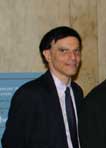
Robert Allen Katzmann was a Senior United States circuit judge of the United States Court of Appeals for the Second Circuit. He served as chief judge from September 1, 2013 to August 31, 2020.

William Michael Treanor is an attorney and legal scholar. He is the dean of Georgetown University Law Center, the former dean of Fordham University School of Law, and an expert on constitutional law, having twice been cited in Supreme Court opinions. He continues to teach as a professor. Treanor held several high-profile government positions and he is an advocate of civil service. His teaching and work evidence Treanor's commitment to his philosophy of a complete legal education: "Intellectual excellence, the craft of lawyering, and dedication to public service."
Non-publication of legal opinions is the practice of a court issuing unpublished opinions. An unpublished opinion is a decision of a court that is not available for citation as precedent because the court deems the case to have insufficient precedential value.
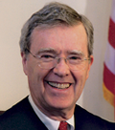
Diarmuid Fionntain O'Scannlain is a Senior United States Circuit Judge of the United States Court of Appeals for the Ninth Circuit. His chambers are located in Portland, Oregon.
The Fordham International Law Journal is a student-run law journal associated with the Fordham University School of Law. According to the Washington and Lee journal rankings, it is the 4th most cited student-edited international and comparative law journal in the United States. The current editor-in-chief is Samantha Ragonesi.

George Steven Agee is a United States Circuit Judge of the United States Court of Appeals for the Fourth Circuit and a former Justice of the Supreme Court of Virginia.
The Texas Law Review is a student-edited and -produced law review affiliated with the University of Texas School of Law (Austin). It ranks number 6 on Washington & Lee University's list, number 11 on Google Scholar's list of top publications in law, and number 4 in Mikhail Koulikov's rankings of law reviews by social impact. The Review publishes seven issues per year, six of which include articles, book reviews, essays, commentaries, and notes. The seventh issue is traditionally its symposium issue, which is dedicated to articles on a particular topic. The Review also publishes the Texas Law Review Manual on Usage & Style and the Texas Rules of Form: The Greenbook, both currently in their fourteenth editions. The Texas Law Review is wholly owned by a parent corporation, the Texas Law Review Association, rather than by the school.

In United States federal courts, a circuit split occurs when two or more different circuit courts of appeals provide conflicting rulings on the same legal issue. The existence of a circuit split is one of the factors that the Supreme Court of the United States considers when deciding whether to grant review of a case. Some scholars suggest that the Supreme Court is more likely to grant review of a case to resolve a circuit split than for any other reason.
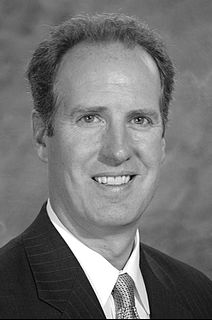
Richard Joseph Sullivan is an American lawyer who serves as a United States Circuit Judge of the United States Court of Appeals for the Second Circuit. He was formerly a United States District Judge of the United States District Court for the Southern District of New York from 2007 to 2018.

Harry Thomas Edwards, an American jurist and legal scholar, is currently a Senior United States Circuit Judge and chief judge emeritus of the United States Court of Appeals for the District of Columbia Circuit in Washington, D.C., and a professor of law at the New York University School of Law.
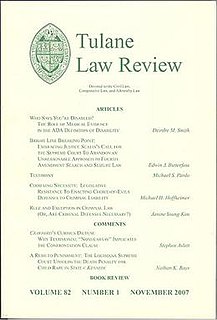
The Tulane Law Review, a publication of the Tulane University Law School, was founded in 1916, and is currently published five times annually. The Law Review has an international circulation and is one of few American law reviews carried by law libraries in the United Kingdom.

Duke University School of Law is the law school of Duke University, in Durham, North Carolina, United States. One of Duke's 10 schools and colleges, the School of Law is a constituent academic unit that began, in 1868, as the Trinity College School of Law. In 1924, following the renaming of Trinity College to Duke University, the school was renamed Duke University School of Law.

The Fordham Urban Law Journal is a student-run law review published at Fordham University School of Law. The journal publishes articles on a wide range of themes, with a focus on public policy and issues affecting urban areas.
















